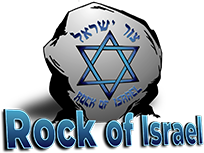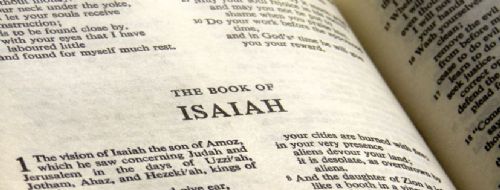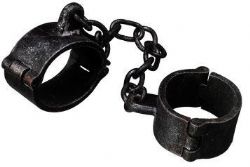We are often told that Isaiah chapter 53 is about Israel. However, that is not the ancient Jewish view of this passage at all.
To show this fact, here are some of the ancient Rabbinical interpretations attributing Isaiah 52:13 through chapter 53 to the suffering Messiah.
This is by no means an exhaustive study, but it’s a good “sampling” of ancient rabbinical thought concerning the person of Messiah.
Note: This is not to say that these ancient Jewish commentators believed that Yeshua (Jesus) was the Messiah. But it is just to point out that they looked at the passage as about the Messiah – whom in their view – had not come yet.
Rabbi Moses Alschech (1508-1600) says (referring to Isaiah chapter 53):
“Our Rabbis with one voice accept and affirm the opinion that the prophet is speaking of the Messiah, and we shall ourselves also adhere to the same view.” (Note: He then says the Messiah in question is King David.)
Abrabanel (1437-1508) said earlier:
“This is also the opinion of our own learned men in the majority of their Midrashim.”
After Rashi had popularized the view of Isaiah 53 as referring to Israel, Rabbi Don Yitzchak Abarbanel circa 1500, who did NOT interpret Isaiah 53 as Messianic, concedes the fact that the majority did. He stated:
“The first question is to ascertain of whom this refers; for the learned among the Nazarenes expound it of the man who was crucified in Jerusalem at the end of the Second Temple . . . Yochanan ben Uzziel interpreted it in the Targum of the future messiah; but this is also the opinion of the learned men in the MAJORITY [emphasis added] of the midrashim.”
Rabbi Yafeth Ben Ali ( second half of the 10th Century):
“As for myself, I am inclined to regard it as alluding to the Messiah.”
Abraham Farissol ( 1451- 1526) says:
“In this chapter there seem to be considerable resemblances and allusions to the work of the Christian Messiah and to the events which are asserted to have happened to Him, so that no other prophecy is to be found the gist and subject of which can be so immediately applied to Him.”
Targum Jonathan ( 4th Century ) gives the introduction on Isa. 52:13:”Behold, my servant the Messiah shall prosper; he shall be high and increase and be exceedingly strong…“
Gersonides (1288-1344) on Deut. 18:18:
“In fact Messiah is such a prophet, as it is stated in the Midrasch on the verse,’Behold, my servant shall prosper…’ (Isa. 52:13).”
Midrash Tanchuma:
“He was more exalted than Abraham, more extolled than Moses, higher than the archangels” (Isa.52:13).
Yalkut Schimeon ( ascribed to Rabbi Simeon Kara, 12th Century ) says on Zech.4:7:
“He ( the king Messiah ) is greater than the patriarchs, as it is said, ‘My servant shall be high, and lifted up, and lofty exceedingly’ (Isa. 52:13).”
Maimonides (1135-12O4) wrote to Rabbi Jacob Alfajumi:
“Likewise said Isaiah that He (Messiah) would appear without acknowledging a father or mother: ‘He grew up before him as a tender plant and as a root out of a dry ground’ etc. (Isa.53:2).”
Tanchuma:
“Rabbi Nachman says: ,The Word MAN in the passage, ‘Every man a head of the house of his father’ (Num.1,4), refers to the Messiah, the son of David, as it is written, ‘Behold the man whose name is Zemach'(the Branch) where Jonathan interprets,’Behold the man Messiah’ (Zech.6:12); and so it is said,’A man of pains and known to sickness’ (Isa.53:3).”
Talmud Sanhedrin (98b) :
“Messiah …what is his name? The Rabbis say,’The leprous one’; those of the house of the Rabbi (Jehuda Hanassi, the author of the Mishna, 135-200) say: ‘Cholaja’ (The sickly), for it says, ‘Surely he has borne our sicknesses’ etc. (Isa.53,4).”
Pesiqta Rabbati (ca.845) on Isa. 61,10:
“The world-fathers (patriarchs) will one day in the month of Nisan arise and say to (the Messiah): ‘Ephraim, our righteous Anointed, although we are your grandparents, yet you are greater than we, for you have borne the sins of our children, as it says: ‘But surely he has borne our sicknesses and carried our pains; yet we did esteem him stricken, smitten of God and afflicted. But he was pierced because of our transgressions, he was bruised for our iniquities: the chastisement of our peace was laid upon him and through his wounds we are healed'(Isa.53,4-5).”
Rabbi Simeon Ben Jochai (2.Century) , Zohar,, part II, page 212a and III, page 218a, Amsterdam Ed.):
“There is in the garden of Eden a palace called : ‘The palace of the sons of sickness, this palace the Messiah enters, and summons every sickness, every pain, and every chastisement of Israel: they all come and rest upon Him. And were it not that He had thus lightened them off Israel, and taken them upon Himself, there had been no man able to bear Israels chastisement for the transgression of the law; this is that which is written, ‘Surely our sicknesses he has carried’ Isa.53,4).- As they tell Him (the Messiah) of the misery of Israel in their captivity, and of those wicked ones among them who are not attentive to know their Lord, He lifts up His voice and weeps for their wickedness; and so it is written,’He was wounded for our transgressions’ (Isa.53,5).
Midrash (on Ruth 2,14): “He is speaking of the King Messiah – ‘Come hither’, i.e.”>Draw near to the throne<; ‘eat of the bread’, i.e.>, The bread of the kingdom.’ This refers to the chastisements<, as it is said, ‘But he was wounded for our transgressions, bruised for our iniquities’ (Isa.53,5).
Rabbi Elijah de Vidas (16.Century) :
“The meaning of ‘He was wounded for our transgressions, bruised for our iniquities’ is, that since the Messiah bears our iniquities which produce the ef fect of His being bruised, it follows that whoever will not admit that Messiah thus suffers for our iniquities must endure and suffer for them himself.”
Siphre:
“Rabbi Jose the Galilean said, ‘Come and learn the merits of the King Messiah and the reward of the Just – from the first man who received but one commandment, a prohibition, and transgressed it. Consider how many deaths were inflicted upon himself, upon his own generation, and upon those who followed them, till the end of all generations. Which attribute is greater, the attribute of goodness, or the attribute of vengeance?’- He answered, ‘The attribute of goodness is greater, and the attribute of vengeance is the less.’ – ‘How much more then, will the King Messiah, who endures affliction and pains for the transgressions (as it is written, ‘He was wounded,’etc.), justify all generations. This is the meaning of the word, ‘And the LORD made the iniquity of us all to meet upon Him’ (Isa.53:6).”
Rabbi Eleazer Kalir (9.Century) wrote the following Musaf Prayer:
“Our righteous Messiah has departed from us. Horror has seized us and we have no one to justify us. He has borne our transgressions and the yoke of our iniquities, and is wounded because of our transgressions. He bore our sins upon His shoulders that we may find pardon for our iniquity. We shall be healed by His wounds, at the time when the Eternal will recreate Him a new creature. Oh bring Him up from the circle of the earth, raise Him up from Seir, that we may hear Him the second time.”
Rabbi Moses, ‘The Preacher'(11. Century) wrote in his commentary on Genesis (page 660):
“From the beginning God has made a covenant with the Messiah and told Him,’ My righteous Messiah, those who are entrusted to you, their sins will bring you into a heavy yoke’..And He answered, ‘I gladly accept all these agonies in order that not one of Israel should be lost.’ Immediately, the Messiah accepted all agonies with love, as it is written: ‘He was oppressed and he was afflicted’.”
Pesiqta (on Isa. 61:10) :
“Great oppressions were laid upon You, as it says: ‘By oppression and judgement he was taken away; but who considered in his time, that he was cut off out of the land of the living, that he was stricken because of the sins of our children’ (Isa.53:8), as it says:’But the LORD has laid on him the guild of us all'(Isa.53:6).”
Rambam (Maimonides) in a letter to Yemen (12th c.) wrote
What is to be the manner of Messiah’s advent, and where will be the place of his appearance? . . . And Isaiah speaks similarly of the time when he will appear, without his father or mother of family being known, He came up as a sucker before him, and as a root out of the dry earth, etc. But the unique phenomenon attending his manifestation is, that all the kings of the earth will be thrown into terror at the fame of him — their kingdoms will be in consternation, and they themselves will be devising whether to oppose him with arms, or to adopt some different course, confessing, in fact, their inability to contend with him or ignore his presence, and so confounded at the wonders which they will see him work, that they will lay their hands upon their mouth; in the words of Isaiah, when describing the manner in which the kings will hearken to him, At him kings will shut their mouth; for that which had not been told them have they seen, and that which they had not heard they have perceived.
Rabbi Moses Maimonides: “What is the manner of Messiah’s advent….there shall rise up one of whom none have known before, and signs and wonders which they shall see performed by him will be the proofs of his true origin; for the Almighty, where he declares to us his mind upon this matter, says, `Behold a man whose name is the Branch, and he shall branch forth out of his place’ (Zech. 6:12). And Isaiah speaks similarly of the time when he shall appear, without father or mother or family being known, He came up as a sucker before him, and as a root out of dry earth, etc.…in the words of Isaiah, when describing the manner in which kings will harken to him, At him kings will shut their mouth; for that which had not been told them have they seen, and that which they had not heard they have perceived.” (From the Letter to the South (Yemen), quoted in The Fifty-third Chapter of Isaiah According to the Jewish Interpreters , Ktav Publishing House, 1969, Volume 2, pages 374-5)
The Aramaic translation of Isaiah 53, ascribed to Rabbi Jonathan ben Uzziel, a disciple of Hillel, begins with the simple and worthy words:
Behold my servant Messiah shall prosper ; he shall be high, and increase, and be exceeding strong: as the house of Israel looked to him through many days, because their countenance was darkened among the peoples, and their complexion beyond the sons of men. (Targum Jonathan on Isaiah 53, ad Iocum)
We find the same interpretation in the Babylonian Talmud:
The Messiah — what is his name?…The Rabbis say, the leprous one; those of the house of Rabbi say, the sick one, as it is said, “Surely he hath borne our sicknesses. ” (Sanhedrin 98b)
In Mysteries of Rabbi Shim’on ben Yohai (midrash) we find:
And Armilaus will join battle with Messiah, the son of Ephraim, in the East gate . . .; and Messiah, the son of Ephraim, will die there, and Israel will mourn for him. And afterwards the Holy One will reveal to them Messiah, the son of David, whom Israel will desire to stone, saying, Thou speakest falsely; already is the Messiah slain, and there is non other Messiah to stand up (after him): and so they will despise him , as it is written, “Despised and forlorn of men;” but he will turn and hide himself from them, according to the words, “Like one hiding his face from us.”
Even the Zohar II, 212a (medieval) states
There is in the Garden of Eden a palace named the Palace of the Sons of Sickness. This palace the Messiah enters, and He summons every pain and every chastisement of Israel. All of these come and rest upon Him. And had He not thus lightened them upon Himself, there had been no man able to bear Israel’s chastisements for the transgressions of the law; as it is written, “Surely our sicknesses he has carried.”
Nachmanides (Rabbi Moshe ben Nachman) (13th c.) stated:
The right view respecting this Parashah is to suppose that by the phrase “my servant” the whole of Israel is meant. . . .As a different opinion, however, is adopted by the Midrash, which refers it to the Messiah, it is necessary for us to explain it in conformity with the view there maintained. The prophet says, The Messiah, the son of David of whom the text speaks, will never be conquered or perish by the hands of his enemies. And, in fact the text teaches this clearly. . . .
And by his stripes we were healed — because the stripes by which he is vexed and distressed will heal us; God will pardon us for his righteousness, and we shall be healed both from our own transgressions and from the iniquities of our fathers.
In the Midrash Rabbah, is an explanation of Ruth 2:14:
He is speaking of the King Messiah: “Come hither” draw near to the throne “and dip thy morsel in the vinegar,” this refers to the chastisements, as it is said, ” But he was wounded for our transgressions, bruised for our iniquities.“
In the Midrash Tanhuma, parasha Toldot, it says:
“Who art thou, O great mountain?” (Zechariah 4:7) This refers to the King Messiah . And why does he call him the “great mountain?” Because he is greater than the patriarchs, as it is said, ” My servant shall be high, and lifted up, and lofty exceedingly .” He will be higher than Abraham who said, “I raise high my hand unto the Lord” (Gen. 14:22), lifted up above Moses, to whom it is said, “Lift it up into thy bosom” (Numbers 11:12), loftier than the ministering angels, of whom it is written, “Their wheels were lofty and terrible” (Ezekiel 1:18). And out of whom does he come forth? Out of David.
Yalkut ii: 571 (13th c.) says:
Who art thou, O great mountain (Zech. iv. 7.) This refers to the King Messiah . And why does he call him “the great mountain?” Because he is greater than the patriarchs, as it is said, ” My servant shall be high, and lifted up, and lofty exceedingly” — he will be higher than Abraham, . . . lifted up above Moses, . . . loftier than the ministering angels.
Yalkut ii. 620 (13th c.), in regard to Psalm 2:6
I.e., I have drawn him out of the chastisements. . . .The chastisements are divided into three parts: one for David and the fathers, one for our own generation, and one for the King Messiah; and this is that which is written, “He was wounded for our transgressions,” etc.
Rabbi Elijah de Vidas (16th c.) wrote:
Since the Messiah bears our iniquities which produce the effect of His being bruised, it follows that whoso will not admit that the Messiah thus suffers for our iniquities, must endure and suffer for them himself.
The musaf (additional) service for the Day of Atonement, Philips machzor (20th c.)
Our righteous anointed is departed from us: horror hath seized us, and we have non to justify us. He hath borne the yoke of our iniquities, and our transgression, and is wounded because of our transgression. He beareth our sins on his shoulder, that he may find pardon for our iniquities. We shall be healed by his wound, at the time that the Eternal will create him (the Messiah ) as a new creature. O bring him up from the circle of the earth. Raise him up from Seir, to assemble us the second time on Mount Lebanon, by the hand of Yinnon.
Rabbi Moshe Kohen ibn Crispin, a 15th-century rabbi in Spain, explains:
“This passage, the commentators explain, speaks of the captivity of Israel, although the singular number is used in it throughout. Others have supposed it to mean the just in this present world, who are crushed and oppressed now… but these too, for the same reason, by altering the number, distort the verses from their natural meaning. And then it seemed to me that…having forsaken the knowledge of our Teachers, and inclined “after the stubbornness of their own hearts,” and of their own opinion, I am pleased to interpret it, in accordance with the teaching of our Rabbis, of the King Messiah.”
Rabbi Mosheh Kohen Ibn Crispin: This rabbi described those who interpret Isaiah 53 as referring to Israel as those: “having forsaken the knowledge of our Teachers, and inclined after the `stubbornness of their own hearts,’ and of their own opinion, I am pleased to interpret it, in accordance with the teaching of our Rabbis, of the King Messiah….This prophecy was delivered by Isaiah at the divine command for the purpose of making known to us something about the nature of the future Messiah, who is to come and deliver Israel, and his life from the day when he arrives at discretion until his advent as a redeemer, in order that if anyone should arise claiming to be himself the Messiah, we may reflect, and look to see whether we can observe in him any resemblance to the traits described here; if there is any such resemblance, then we may believe that he is the Messiah our righteousness; but if not, we cannot do so.” (From his commentary on Isaiah, quoted in The Fifty-third Chapter of Isaiah According to the Jewish Interpreters , Ktav Publishing House, 1969, Volume 2, pages 99-114.)
Rabbi Moshe Alsheikh, Rabbi of Safed, late 16th century, points out this fact saying:
I may remark, then, that our Rabbis with one voice accept and affirm the opinion that the prophet is speaking of the King Messiah.
Rabbi Sh’lomoh Astruc (14th c.)
My servant shall prosper, or be truly intelligent, because by intelligence man is really man — it is intelligence which makes a man what he is. And the prophet calls the King Messiah my servant, speaking as one who sent him. Or he may call the whole people my servant, as he says above my people (lii. 6): when he speaks of the people, the King Messiah is included in it; and when he speaks of the King Messiah, the people is comprehended with him. What he says then is, that my servant the King Messiah will prosper.
Much to the point is the commentary of the great Jewish educator, Herz Homberg (1749-1841), who says:
According to the opinion of Rashi and Ibn Ezra, it relates to Israel at the end of their captivity. But if so, what can be the meaning of the passage, “He was wounded for our transgressions”? Who was wounded? Who are the transgressors? Who carried out the sickness and bare the pain? The fact is that it refers to the King Messiah.
One of our greatest Jewish religious poets, Eliezer HaKalir, paraphrased this chapter in the 9th century into rhyme and metric poetry. It is recited in the Yom Kippur prayer of Kether:
Messiah, our righteousness, hath turned from us: we are in terror and there is none to justify us! Our Iniquities and the yoke of our transgressions He did bear for He was wounded for our transgressions: He carries our sins upon His shoulders, that we may find forgiveness for our iniquities and by His stripes we are healed. O eternal One the time is come to make a new creation: from the vault of heaven bring Him up, out of Seir draw Him forth, that He may make His voice heard to us in Lebanon, a second time by the hand of Yinnon.
Below are remarks from The Karaite Yefeth ben Ali (10th c.)
As to myself, I am inclined, with Benjamin of Nehawend, to regard it as alluding to the Messiah , and as opening with a description of his condition in exile, from the time of his birth to his accession to the throne: for the prophet begins by speaking of his being seated in a position of great honour, and then goes back to relate all that will happen to him during the captivity. He thus gives us to understand two things: In the first instance, that the Messiah will only reach his highest degree of honour after long and severe trials; and secondly, that these trials will be sent upon him as a kind of sign, so that, if he finds himself under the yoke of misfortunes whilst remaining pure in his actions, he may know that he is the desired one….
By the words “surely he hath carried our sicknesses,” they mean that the pains and sickness which he fell into were merited by them, but that he bore them instead. . . . And here I think it necessary to pause for a few moments, in order to explain why God caused these sicknesses to attach themselves to the Messiah for the sake of Israel. . . . The nation deserved from God greater punishment than that which actually came upon them, but not being strong enough to bear it. . . God appoints his servant to carry their sins, and by doing so lighten their punishment in order that Israel might not be completely exterminated.
“And the Lord laid on him the iniquity of us all.” The prophet does not by avon mean iniquity, but punishment for iniquity, as in the passage, “Be sure your sin will find you out” (Num. 32:23).
Lekach Tov (11th c. midrash) says:
“And let his [Israel’s] kingdom be exalted,” in the days of the Messiah, of whom it is said , “Behold my servant shall prosper; he will be high and exalted, and lofty exceedingly.”
So the next time someone says that “the Jewish interpretation of Isaiah chapter 53 is that – it is about Israel” tell them to review the older Jewish interpretations.
It was clearly looked at as about the coming Messiah.






